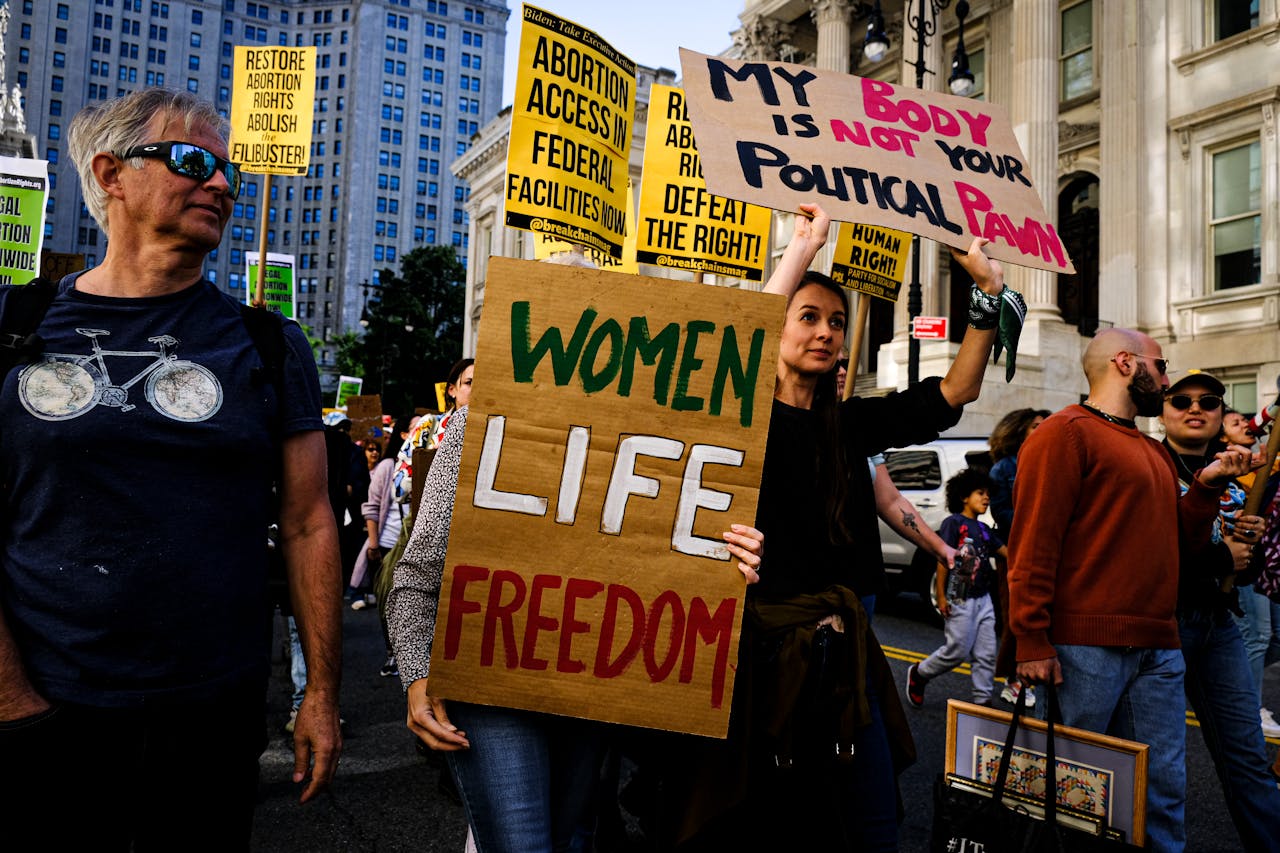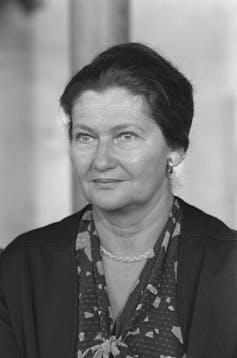News
Abortion rights are featuring in this year’s European election campaign in a way we’ve not seen before

Issues of reproductive rights are on the agenda in way we’ve never seen before. (Pexels Photo)
The recent landmark decision in France to inscribe the right to abortion in the constitution serves to protect the law that first legalised abortion in the country in 1975. This law – the so-called Veil law – was championed by Simone Veil, one of France’s most admired and respected political figures, and an icon of the women’s rights movement.
In 1974, Veil, a magistrate who had been asked by French President Valéry Giscard d’Estaing to serve as health minister in his government, delivered a momentous speech. She presented the public health case for the decriminalisation of abortion to the National Assembly, which at the time was composed almost entirely of men.
The speech was met by fierce opposition and hostility, especially by those on the political right. Veil nevertheless managed to convince a majority of the deputies to vote in favour of her proposal. Once approved by the Senate, the law entered into force in 1975. Veil thereby became a symbol of women’s empowerment and emancipation.
Following her political success at national level, Veil stood in the first direct elections to the European Parliament in 1979. Once elected, the parliament chose her as its president, and she became the first woman to head any of the European institutions.
An election ahead
Political parties are now gearing up for the latest round of elections to the European Parliament in June, more than 40 years after Veil first entered the institution. And issues of reproductive rights are on the agenda in way we’ve never seen before.

Wikipedia/Anefo photo collection
In 2022, the European parliament felt the need to issue a resolution strongly condemning backsliding in women’s rights and sexual and reproductive health rights.
This came in response to the US Supreme Court’s decision to overturn Roe v Wade, which had guaranteed the constitutional right to abortion for 50 years. But it was also a response to developments in some EU member states.
The resolution highlighted in particular the de facto ban on abortion that has come into force in Poland in recent years but also mentioned Malta, where abortion is illegal, Slovakia, where access is restricted, Hungary, where procedures are “not available” and even Italy, where rights are being threatened.
Importantly, the resolution also calls for the right to abortion to be included in the EU Charter of Fundamental Rights, which would mean all women in the European Union would have the right to access reproductive healthcare of this kind, thereby offering them some protection from restrictions in their home nations.
This call was echoed by French president Emmanuel Macron during the ceremony marking the new constitutional right to abortion in France.
Yet, the parliamentary resolution masks internal divisions between, and sometimes within, the political groups of the European parliament. As these political groups are launching their campaigns and election manifestos, it is clear that the issue of abortion has become part of the wider political polarisation seen across Europe.
Many far-right parties, which are predicted to make significant gains in the upcoming elections, call for restrictions on abortion rights. The European Conservatives and Reformists, a right-wing group that brings together parties such as Brothers of Italy and Spain’s Vox, says it wants to “defend life, from its conception until its natural end.”.
The political parties within the Identity & Democracy group do not share a common position on the issue, but several adopt a restrictive approach. For example, the Alternative for Germany recently voted against a proposal to ban a law preventing doctors from providing information on abortion procedures in Germany.
The centre-right European People’s Party, the biggest political group in the Parliament, remains divided on the issue, but most of its MEPs agree that abortion should remain a matter of national competence.
Groups on the other side of the political spectrum, meanwhile, are making explicit reference to the need to safeguard and expand reproductive health and rights in their European election manifestos. They include the Left group, the Greens and the Socialist & Democrats.
Similarly, the liberal group Renew Europe is pushing for greater alignment on abortion rights across the EU. It it is behind the recently launched Simone Veil Pact, which calls for greater pan-European effort on gender equality.
A new parliamentary term
Veil considered the European parliament a key institution in the democratic development of the European Community. She saw the right given to Europeans to vote for the parliament as a milestone and a springboard for increased parliamentary involvement in European integration and decision-making. Under her leadership, the European parliament gained greater recognition and transformed into a real political actor.
Veil held the post of president for three years, and she remained a member of the European parliament until 1993. During her three terms as an MEP, she continued to support issues relating to women’s rights.
The arguments once made by Simone Veil, who in 2018 was honoured with a burial in the Panthéon (the Parisian mausoleum reserved exclusively for France’s most eminent citizens), are surfacing once again ahead of the hotly contested European parliament elections.
When the 720 newly elected MEPs meet for the next parliamentary term, discussions and debates around abortion and women’s rights are bound to continue. They may well take a different tone and occupy a higher position depending on the outcome of the elections.![]()
Magdalena Frennhoff Larsén, Senior Lecturer in Politics, University of Westminster
This article is republished from The Conversation under a Creative Commons license. Read the original article.





















